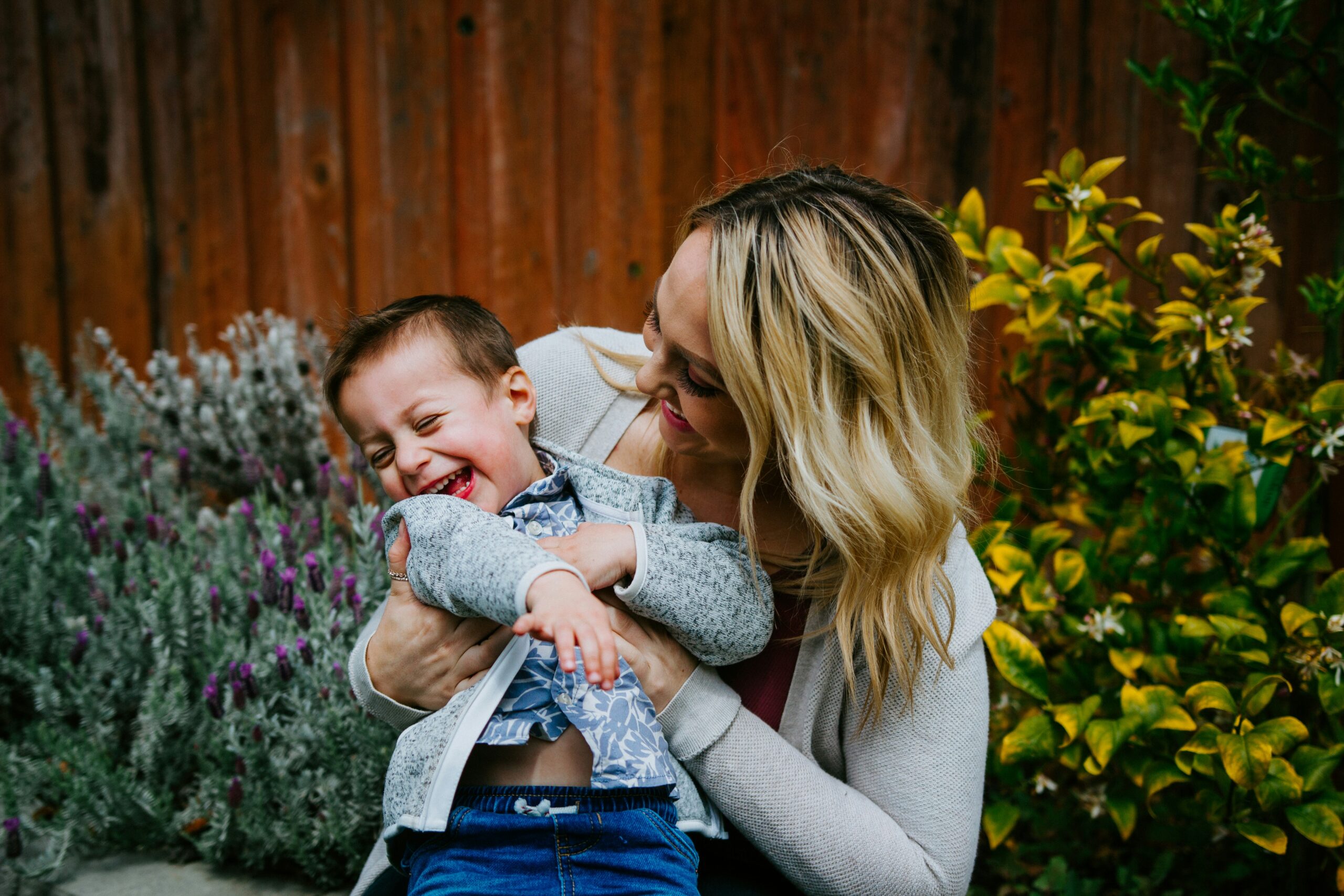Ever felt overwhelmed by parenting challenges? You’re not alone – and becoming a parental coach might be the solution you’re looking for. This guide dives into the realities of the job, essential training programs (both English and French options), and how to build a thriving coaching business. From real-life success stories to proven strategies (like our 4-day Online Coach Express program), we’ll cover everything you need to turn your passion into a profitable career.
Table of contents
- What Is a Parental Coach and Who Do They Help
- Key Qualifications and Training Programs
- Building a Successful Parental Coaching Business
- Success Stories and Income Potential
What Is a Parental Coach and Who Do They Help
Parental coaching is a growing field where professionals guide parents through raising kids with practical solutions. It’s different from therapy since it focuses on current challenges, not past issues. Think of it as a tool to improve family dynamics by helping parents understand their children’s needs. This approach isn’t about judging parents but giving them strategies to create a positive environment where everyone thrives.
I’ve seen firsthand how parental coaching creates positive change. It’s not about clinical fixes but practical support. Coaches work with families to set goals, improve communication, and use role-playing to tackle daily struggles. For example, a parent might learn techniques like C.L.E.A.R. (Connect, Limit, Empower, Responsibility, Repair) to handle emotional triggers. The magic here? Coaches empower parents to find their own solutions, not dictate what to do.
Here are the most common situations where families seek parental coaching:
- Working parents seeking balance between career and family life
- Blended families managing complex household dynamics
- Adoptive/foster parents facing unique parenting challenges
- Parents struggling with children’s behavioral issues
- Families aiming to improve communication patterns
Parental coaches handle everyday parenting hurdles and life transitions but aren’t equipped for deep psychological trauma. They can’t diagnose mental health conditions. If you’re dealing with severe behavioral issues or past trauma, a therapist would be better suited. Coaches focus on actionable steps for current problems, not clinical interventions.
Key Qualifications and Training Programs
Let’s break it down: becoming a parental coach isn’t about having a fancy degree but having the right mindset. You know what? Empathy and active listening matter more than anything. I’ve met coaches from all walks of life—teachers, HR pros, even stay-at-home parents. The secret sauce? Being patient, non-judgmental, and genuinely curious about human behavior. If you’re someone who parents feel comfortable opening up to, you’ve got the basics covered.
Here’s the kicker: while no formal diploma is required, structured training helps you stand out. The table below compares popular certifications in English and French to get you started:
| Program | Cost & Duration | Key Features |
|---|---|---|
| Parent Coaching Institute (PCI) | $5,800 (lump sum) or $1,450 x4 payments | 12 months | Not ICF accredited | Parenting as a Living System, Functional Ecology, Brain-Compatible Parenting, 100 coaching hours requirement |
| Jai Institute for Parenting | $4,750 | 7 months | Not ICF accredited | Child development focus, Neuroscience integration, Career launch support |
| ADD Coach Academy | $6,135 | 116 hours | ICF Level 1 Accredited | ADHD-specific coaching, Includes mentorship and client coaching hours |
| Conscious Parenting Coaching Institute by Dr. Shefali | $9,545 | 5 months | Not ICF accredited | Conscious parenting philosophy, 1-month practical lab, High cost |
| Connected Families | $2,800 total | 12 months | Not ICF accredited | Spirituality-based, Requires human services degree or 5 years experience |
| FORMALIS (France) | €590 | 18-month access | Not ICF accredited | Positive parenting, Nonviolent Communication (CNV), Eligible for CPF funding |
Let me give you a quick rundown of top programs. Jai Institute’s certification thoroughly covers child development and neuroscience, perfect if you want to blend science with practical skills. For French options, Coaching Ways France offers 290-hour courses with CPF funding—handy if you’re in France. GROUPE COACH ACADEMIE’s 268-hour program is another solid pick. All these programs help you build credibility while giving you tools to actually help parents.
Here’s the thing about the “Online Coach Express” program: it’s built for fast results. You’ll learn how to structure 1:1 coaching sessions and launch your business in just 4 days. No fluff, just actionable steps to get clients fast. If you’re itching to start without years of training, this might be your jam.
Building a Successful Parental Coaching Business
Starting a parental coaching business? Let me break it down: first, pick a legal structure like auto-entrepreneur for simplicity. Then, build your online presence with a clear call-to-action like “Book Your Free Discovery Session.” Use social media—tools like Later for scheduling—and community events to find your first clients. Honestly, some coaches land paying clients before certification. Just focus on visibility and practical steps.
Want to scale beyond 1:1 sessions? Think group workshops, online programs, or digital products like ebooks. Laurie Wong, for example, runs group parenting sessions. Did you know 93% of coaches diversify their income? The online coaching market’s expected to hit $20B by 2026, so digital offerings are a no-brainer. Mix in niche services—like sleep training or parent burnout support—to stand out and stabilize your revenue.
Here’s how to get noticed:
- Leverage social media for targeted parent outreach
- Create free resources to build email subscriber base
- Network through community events and workshops
- Collaborate with complementary family service professionals
- Develop niche-specific marketing campaigns
Networking isn’t just exchanging business cards—it’s building real connections. Team up with pediatricians or child therapists for referrals. Join communities like EntreCoachPreneur (over 100 coaches on Discord) for shared insights. Let me tell you, coaching grows faster when you’ve got a tribe. Support fellow coaches through mentorship or client referrals. It’s not just about getting clients; it’s about creating a support system that lifts everyone’s game.
Success Stories and Income Potential
Let’s get real about the money side. New coaches start around $50/hour, while seasoned pros charge up to $3500 for a 12-week program. In France? The average rate sits at €70/hour, with annual incomes ranging from €16,000 to €35,000. You’ll scale faster by adding group programs or digital products—no fluff, just practical steps to boost your rates as you gain experience.
| Service Type | Typical Rates | Income Potential |
|---|---|---|
| 1:1 Coaching | $50–$150/hour | $1200–$2400/program |
| Group Programs | $40–$100/hour | $5000–$15,000/program |
| Digital Products | $19–$97/lifetime | Scalable passive income |
| Niche Services | $75–$200/session | Higher margins for specialties |
Let me tell you about Olivia The Positive Parent Coach. She uses positive psychology and runs 1:1 sessions, group programs, and a paid membership. Her secret? No magic formulas—just practical tools. Then there’s Jaclyn Carlson, a Jai Institute grad, who focuses on connection over control. You know what? Coaches like them prove you can build a thriving practice by solving real problems, not just talking theory.
French coaches like Hérade Zimmermann prove this works cross-culturally. She avoids one-size-fits-all advice and tailors solutions to unique family dynamics. One parent shared how forest therapy sessions helped them reconnect. In France, 5% of parents face burnout—200,000 people—making this work urgent. The key? Blend global methods with local needs, like offering in-person sessions in parks instead of clinics. It’s not just business—it’s personal.
The path to becoming a parental coach blends passion for helping parents with practical skills, accessible training like Online Coach Express, and proven business strategies. By focusing on real-life success stories and tailored approaches, you can start your journey today. Imagine transforming families’ lives while building a fulfilling career—why wait to turn this vision into reality?
FAQ
How long does it take to become profitable as a parental coach?
Honestly, reaching a stable income as a coach, including a parental coach, typically takes *12 to 24 months*. For your business to truly hit full profitability, you’re often looking at *2 to 3 years*, much like any entrepreneurial venture. The first six months are usually all about *setting up your foundations*: finishing training, getting your business registered, and starting to reach out to potential clients. It’s a big push to get things going!
The next six months are crucial for *gradually building your client base*, refining your market position, and fine-tuning your rates. After about a year, you’ll find that *word-of-mouth and referrals* start playing a much bigger role, which can really speed up your growth towards profitability. Ultimately, your ability to *find clients and generate positive buzz* is absolutely critical, and it definitely requires *persistence and continuous effort*.
What are the legal obligations for a coach?
As a parental coach, you’re in an *unregulated liberal profession*, so while there’s no specific state diploma, you do have legal steps to follow. First off, you need to *declare your activity* to the business formalities desk within eight days of starting. You can choose to operate as a *sole proprietor* or set up a company, and it’s good to know that as a sole proprietor, your professional assets are kept separate from your personal ones.
For social security, you’ll be considered a *non-agricultural self-employed worker* (TNSNA) and contribute to Urssaf, which covers your health, family benefits, and retirement – your first payments typically kick in around 90 days after you start. Tax-wise, your profits fall under *non-commercial benefits* (BNC) for income tax. You might even qualify for the *micro-entreprise regime* if your annual revenue is below €77,700, which simplifies things. Just remember, unlike some regulated professions, there’s *no specific professional order or code of ethics* imposed by law for coaches.
What challenges do parental coaches face?
Parental coaches definitely face some unique hurdles. First, you’re dealing with the sheer *scale and complexity of parents’ struggles*. They often feel overwhelmed, stressed, or even burnt out, grappling with everything from conflict resolution to instilling values without guilt. Your job is to provide *constructive answers* and help them clarify their goals, which can be pretty emotionally charged.
Another big challenge is mastering the *specific and sophisticated tools and methodologies* you’ll need. To truly help parents manage their emotions and challenge limiting beliefs, you’ll dive into approaches like the Neurocognitive and Behavioral Approach or practical techniques for stress management. And finally, maintaining a *neutral and benevolent stance* is key. Parents are looking for someone objective, empathetic, and free from emotional involvement, so keeping that balance while guiding them through their own stress is a continuous but incredibly rewarding challenge.
What continuous training is recommended for parental coaches?
Since parental coaching isn’t a state-regulated profession, there isn’t one ‘official’ continuous training recommended by the government; it’s mostly offered by *private organizations*. One popular option is the *Filliozat Method*, which focuses on empathetic support and understanding child behavior. While the full 18-module course isn’t fully accessible anymore, you can often take *individual ‘à la carte’ modules* covering topics like emotional education or attachment theory, usually costing around €700-€875 for a few days of training, and financial aid might be available for liberal professionals.
Then there’s the *École des Formations Positives*, offering a ‘Qualified Parental Coach in Positive and Relational Education’ program. This one is *qualifying and certified internationally*, a 100-hour online course (with 28 hours of live video) that can get you ready to practice in just a few months for about €1200. It covers positive education, neuroscience, and non-violent communication, making it accessible even if you have no prior experience. It’s all about getting you *operationally ready* to launch your business, though it’s worth noting it’s *not eligible for CPF funding* because the profession isn’t state-regulated yet.


